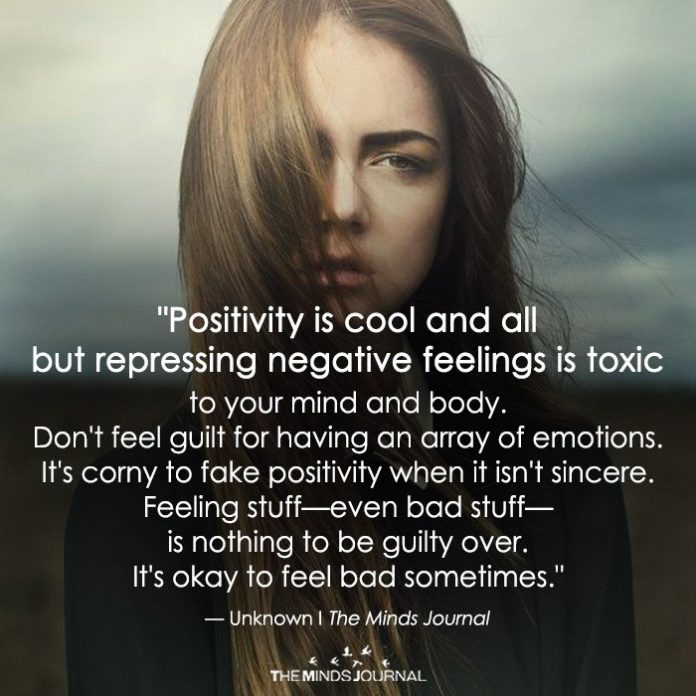“Your emotions make you human. Even the unpleasant ones have a purpose. Don’t lock them away. If you ignore them, they just get louder and angrier.” – Sabaa Tahir. This quote perfectly encapsulates why you should always embrace all your feels, and not resist them.
Don’t it always seem to go that you don’t know what you’ve got ’til it’s gone? Why yes, Joni Mitchell – it does seem to go that way. But I argue there is also another way it goes: that you don’t know what was gone ‘til it’s back.
This realization hit me hard the other day as I struggled to handle the return of some unfamiliar feelings – emotions.
Now at first, that might not make sense – we often think feelings and emotions are the same. But they aren’t. In doing some research, I learned that emotions are physical states while feelings are mental associations and reactions to emotions. Basically, your brain looks at an emotion that arises in your body, assigns meaning to it, and that results in a feeling. Feelings may be the effect, but emotions are the deeper-rooted cause.
Related: 10 Things You End Up Doing When You’re Repressing Your Feelings
When we don’t want to feel a certain way, we tend to repress the emotion that causes the unwelcomed feeling. Push it down, bury it, pretend it isn’t there. I did that for years. Not wanting to feel the pain of heartache, I suppressed the emotion of sadness altogether.
And that’s where it gets tricky… because feelings are subjective. They’re our brain’s interpretation and therefore influenced by experiences, memories, and beliefs. Ultimately, on some level, we choose them. And oftentimes, we choose wrong. In all my years of suppressing my sadness, I felt like I was being strong. I felt like I was moving on. I felt like I was okay. But I wasn’t.
Because years of denying pain can lead to apathy until we no longer know what we’re missing. I haven’t felt real emotions in a long time. Surface level feelings, sure. But deep-rooted, feel-it-in-your-body emotions? It’s been a minute. Because when we numb ourselves to one emotion, it bleeds into others.
My experiences with love taught my brain to associate it with the same unpleasant feelings as sadness, to tie love to feelings of rejection, feelings of loss, feelings of heartache. So at some point, I began to deny the emotion of love as well.
We don’t get to be selective when it comes to our emotions – it’s an all or nothing game. And I was on the “nothing” side for quite some time without even realizing it.
But here’s the thing – the “all” is always there.

We may deny the uncomfortable emotions that arise in our life. We can push them back down and refuse the experience. But that doesn’t mean they go away. They stay buried inside us, patiently waiting their turn to surface. And in the meantime, they find every opportunity to remind us they’re there. They raise their hands and we’re anxious, stand up and we’re insecure, jump around and we’re depressed. And when we open the gate to let the pleasant ones free (love, happiness, joy), the unwanted ones can sneak out as well.
That’s what happened to me. One minute I felt a wave of extreme love… a pure feeling of joy I’d barely had glimpses of over the years. It was a fleeting feeling but I was still grateful it stopped by. Then later that day another emotion arrived – sadness. The dull, persistent, unmistakable, pain of heartache I avoided for so long had returned.
But this one didn’t stop by for a short visit like its counterpart did. Oh no – this one stuck around the rest of the night and into the next day, gnawing at my heart and begging my brain to spiral out of control into the land of insecure thoughts, needy behavior, and attention-seeking decisions.
I resisted the urge to let the emotion take over, but I was frustrated with its persistence. I could barely hold onto the wave of love – the one I wanted – and then I couldn’t get rid of the one I didn’t want. What’s wrong with me?
And that’s when the bigger lesson hit me. The experience wasn’t just practice in self-awareness of my thoughts and feelings… it was practice in self-acceptance.
Because accepting ourselves means accepting our whole selves… and all the feels along the way. We can’t deny them because they came for a reason. No matter how unpleasant, they exist to teach us – show us where our triggers are or where we haven’t dealt with something. We can only learn the lesson if we let them in and listen patiently, knowing it may take a while.
Related: Brené Brown’s Powerful Quotes on Accepting Yourself Whole-Heartedly
That’s what we often fail to do. We don’t acknowledge unfriendly emotions. We don’t sit with them without judgment until they are ready to leave. Instead, we immediately reject them, barely let them in the door before shoving them away.
But we have to understand they are part of us. All the emotions and all the feels are part of the human experience. So we should let them all in. Accept each one. Sit with each one. Appreciate each one, knowing it will not stay forever and we can’t let it stay forever. But understanding it too has something to say, understanding that difficult teachings are where we learn the most, and understanding that when it comes to emotions, unpleasant visitors are better than none at all.
Written By Kacie Main Originally Appeared In Thought Catalog









Leave a Reply
You must be logged in to post a comment.